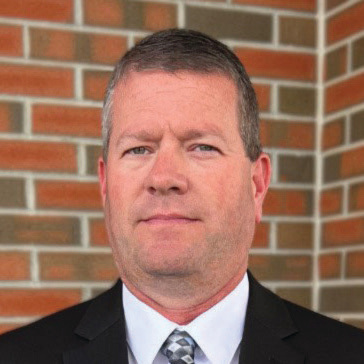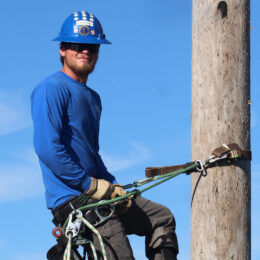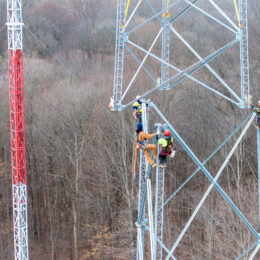
CEO
As the Chief Executive Officer of Daviess-Martin County REMC, I’m accustomed to members’ questions about power outages and why it can take time to get the lights back on. Given our reliance on electricity, there’s simply never a good time to be without it.
This month, I would like to shed light on our restoration process to help our members understand what may be happening behind the scenes. Here are 10 things you might not know about restoration:
- We need you. When your power goes out, it might be just at your home or a small neighborhood section. There is a chance we may not know about it, and no one has reported it. We rely on you to let us know if your power is out. To report your outage, call the office during business hours at 812-295-4200 or call 800-762-7362 after hours. You can also report your outage through your SmartHub account.
- Our employees might be affected, too. Because Daviess-Martin County REMC is a local electric cooperative owned by the members we serve, our employees are also local. They are your neighbors, friends, and familiar community volunteers. When you’re without power, our people might be, too.
- It’s a team effort. Every one of Daviess-Martin County REMC’s employees is working to get your power restored as soon as possible. Our member services representatives take your calls, engineers and field staff survey damage, our vegetation management team clears hazards, dispatchers organize crews, and communicators keep everyone informed of progress or potential dangers. When your power goes out, we all work together as quickly and safely as possible to get you back to normal.
- We assess the situation first. Every outage is different, and we don’t know how dangerous it is or what equipment might need to be replaced. When responding to outages, we first need to see what happened, then figure out what materials we need and a plan for how to fix the problem without compromising electric flow for the rest of our members.
- The largest number of members usually prioritizes restoration we can get back on in the shortest amount of time. Our crews focus on responding first to public safety issues and critical services like hospitals. Then, we complete work that impacts the largest number of people first.
- Our employees face many dangers. In addition to working around high-voltage electricity, our crews are on alert for wild animals, weather elements, falling trees, and fast-moving cars. If you ever drive past one of our vehicles, please do so slowly.
- Flickering lights are a good thing. Some folks mistake flickering lights for outages, but these “blinks” are important because they indicate our equipment worked and prevented a possible outage likely caused by wayward animals or stray tree limbs on the lines.
- You need a backup plan. We do our best to help those who need it, but if you depend on electricity for life support purposes, you must have a backup plan — remember, we don’t always know how long restoration efforts will take. We do offer medical priority for people in these situations. It does not guarantee uninterrupted service but does help us keep you advised of extended or planned outages. You can find the form to sign up at dmremc.com/medical-priority.
- Our employees have to plan and eat. If you ever see our trucks in a restaurant parking lot while your power is out, know that sometimes our employees huddle in a safe, common area to map out their plan for getting your power back on. Also, our crews work long, hard hours during outages and need to take time for meals just like everyone else.
- Sometimes it’s a waiting game. Our portion of the power grid is connected to other electric utilities, and we maintain positive relationships with power providers interconnected to our system. If our outage is due to an issue from their feed into our system, we must let them do their repairs and be mindful of what they’re going through to fix it.
We do our best to avoid power disruptions, but they are inevitable from time to time. If the lights go out, know that your co-op team works as quickly and safely as possible to restore power.



